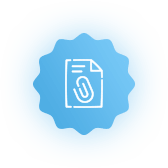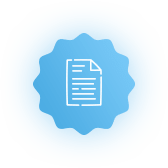Our Perfect Essay Writers Are Always at Your Service!

The modern world is developing very fast supported by technological progress. This pace has a considerable impact on one of the most important aspects of life – communication. New technologies allow increasing the level of convenience of communication and make it borderless. As a result, the planet is becoming highly integrated and globalized. One of the technologies that boosts effective communication includes social media websites. Today, the number of users of social media platforms has reached almost 3 billion people and this figure continues to increase. The ever-increasing popularity of social media resources makes them a workable tool for a great deal of purposes associated with interactions. Advertising is the key element of influencing people in social networks because it aids to dramatically raise the exposure and generate buzz required for fast, cost-effective promotion. This is especially true for emerging and interesting topics such as disaster response, elections, and sales. Social media is highly important for political campaigns because of the ability to influence decision-making and spread information productively. The research question for this paper will be “How can social media websites impact elections and motivate people to take particular actions?” It is thus sensible to illustrate the use of social media at work by providing a case on this tool influencing political campaigns as well as highlight the relation between its application and political power.
Social Media and Work
The landscape of communications is becoming more complex and more participatory with the development of social media. From the perspective of politics, this fast development creates a specific environment where people have more freedom. That is why by using social media channels and websites loosely coordinated publics can demand change and, at the same time, can be misled by the information flow they are exposed to. The information flow has the power to shape a certain political view in a particular group of people. This can be explained by the fact that the discussed channels help to view a considerable volume of political news and actively participate in any political discussion. Form one hand this provides the general public with ultimate power to influence politics. From another hand, this provides the ability to impact the decision-making process of the public. So that it is possible to define social media as a marketplace for ideas and those ideas that are not able to find the support of the majority get lost in the informational noise. These kinds of websites provide the ability to shape the desired news feed and limit the access to the information that presents opposing political views. As a result, people influenced by certain piece of information cannot participate in a vibrant public conversation and make a decision based on accurate analysis of a situation. Instead, they end up in an online echo chamber and can see only one side of the coin. Consequently, they believe in the political view that is communicated to them via such platforms. This mechanism explains the phenomenon of how social media websites impact elections and motivate people to take particular actions.
Why us?

Expert authors with academic degrees

Papers in any format: MLA, APA, Oxford, Harvard

24/7 livecustomer support

Only authentic papers plagiarism and AI free

Absolute confidentiality

Decent prices and substantial discounts
Our custom writing service is your shortest way to academic success!
Order NowCase Study
The political power of social media is extremely high in the modern world. The president of the United States, Donald Trump, is one of the most active politicians in this regard. He makes social posts approximately 40 times a week and keeps the general public informed about all his steps. This creates a particular flow of information able to limit the availability of opposite information for a selected group of people. Social media enables the interested officials to directly interact with voters and show them that this or that politician is fulfilling his or her responsibilities. Hence, a solid level of trust is established because of a high level of openness of the leader of the country. One of the topics of posts of Donald Trump was his Middle East policy and its imploding. The Middle East policy has a strong connection with a popular topic on such sites – the Arab Spring. The Arab Spring was a historic event when such countries as Tunisia and Egypt introduced democracy. Social media was the factor that allowed the population of these countries to overthrow their regimes by receiving support from around the world, including the support of politicians. Of course there is a large quantity of reasons why the Arab Spring was successful; however, the effective use of these means was one of the most important supportive factors.
Research Argument
The case study aims to tell about the media, especially such that has the power to indirectly influence the way people consider events, information, and actions. This has a close connection with media theory and explains the aspects of the theory on practice. That is because the research argument illustrated in the case study contradicts with normative media theory according to which the obligation of mass media is to act in accordance with values and arrangements in a given society. However, social media acts in accordance with specific goals set without considering the real needs of people. It is important to note that in social media settings, no opinion is imposed but the required environment is created to ensure that people can support the predetermined opinion.
Our Lifetime Discounts:

Exclusive savings! Save 25% on your ORDER
Get 15% OFF your FIRST ORDER (with the code perfect15) + 10% OFF every order by receiving 300 words/page instead of 275 words/page
Research Bibliography
Allcott, H., & Gentzkow, M. (2017). Social media and fake news in the 2016 election. Journal of Economic Perspectives, 31(2), 211-36.
The authors of the study concentrate on discussing the way social media channels can promote false stories, especially during presidential elections. The work also presents information on the economics of telling false stories and discusses the increasing consumption of such stories during the process of elections. The research can be used to support the research question and provide background information on how such resources can help politicians to impact the general public and decision-making process during elections.
Cohen, N. S. (2018). At work in the digital newsroom. Digital Journalism, 1-21.
The work of Cohen explores the environment where information flow has an extremely fast speed because of the availability of social media. The author starts that journalism today is becoming more and more dependent on such mind-shaping channels. As a result, digital journalists’ working conditions are becoming complex and challenging. The work of the author can be used to understanding the modern digital environment form the perspectives of those who play a key role in it – journalists. This can help to make the research more comprehensive and consider the problem of social media effect from the perspectives of both consumers and those who create news.
Couldry, N. (2012). Media, society, world: Social theory and digital media practice. Cambridge, UK: Polity Press.
The book concentrates on discussing the fundamental role of media in the modern social world. The transformation of media that occurs today due to the impact of technological advancements such as social media has a direct impact on the way people interact. This interaction can impact the way people think and act under the influence of a constant and uncontrolled flow of information. As a result, it becomes possible to evaluate the real role media plays in the life of people today and provide background information for the research.
Our Free Features
Our agency is the one which can provide you with effective
academic writing projects. There are many features that are offered by our agency for free,
namely:

A title page

Table of contents

An abstract

A reference page /
bibliography

An outline
(on request)
De Kosnik, A. (2012). Fandom as free labor. In Digital labor: The Internet as playground and factory (pp. 106-119). New York, NY: Routledge.
The growing popularity of social media channels supports the development of new professions such as blogger. The work of De Kosnik states that YouTube is becoming a commercialized platform used by influential people to impact the general public through popular bloggers. The work utilizes the political economy and radical mediation theory in order to illustrate the impact from different perspectives and explained the mechanism of work of these tools and YouTube in particular. This information can be used for developing a strong background for the paper.
Duffy, B. E. (2015). Gendering the labor of social media production. Feminist Media Studies, 15(4), 710-714.
The author of the study states that the websites in this category are used in a way to promote creativity and activism. It also has a considerable impact on promoting free labor that means people work only not for financial reward but pleasure. However, social media websites are promoted as a way to start a rewarding career. The gendered professions created, such as blogging, allow influencing the audience in an easy and engaging way. This can support the research topic and proofs that social media can impact the decision-making process of the general public.
Howard, P. N., Duffy, A., Freelon, D., Hussain, M. M., Mari, W., & Maziad, M. (2011). Opening closed regimes: what was the role of social media during the Arab Spring? Project on Information Technology and Political Islam (Data Memo 2011.1). Retrieved from https://deepblue.lib.umich.edu/bitstream/handle/2027.42/117568/2011_Howard-Duffy-Freelon-Hussain-Mari-Mazaid_PITPI.pdf?sequence=1&isAllowed=y%20
The authors of the study discuss the central role of social media channels in the process of shaping political debates in the Arab Spring. That is because online conversations have the power preceded major events on the ground and spread ideas internationally almost effortlessly. The topic of the Arab Spring is very important for understanding the power that this medium has over the public.
Khondker, H. H. (2011). Role of the new media in the Arab Spring. Globalizations, 8(5), 675-679.
The Arab Spring turned out to be a very important topic in social media channels. The work of Khondker examines the role of social media in the Arab Spring. The paper concludes that the population of the country facing the Arab Spring did not have any an open media and a civil society to support the revolution. That is why social media plays a key role in promoting democracy in the country. This illustrates the extreme power of social media to drive social processes in even the most informationally closed countries.
Paper details:
- 12-point Times New Roman
- 1-inch margins
- Plagiarism-free and AI-free
- 300 words/page instead of 275
- Single or double-spaced
Free Features:
- Free cover/title page
- Free table of contents
- Free abstract
- Free references/bibliography list
- Free outline (on demand)
Lim, M. (2012). Clicks, cabs, and coffee houses: Social media and oppositional movements in Egypt, 2004–2011. Journal of Communication, 62(2), 231-248.
The author of the research considers Egyptian uprising of early 2011 and the way the population was able to influence the political and social climate in the countries. The work provides evidence that proves that social media afforded opposition leaders to generate online activism and transform it into offline protests. The research paper allows to deeper understand the role of it in political change and supports the research argument of the paper.
Marwick, A. E. (2013). Status update: Celebrity, publicity, and branding in the social media age. New Haven, CT: Yale University Press.
The research paper discusses the root technological causes that allowed social media to become a transparent and empowering network. The ability to understanding this aspect allows understanding how visibility online is gained by celebrities and other people who are influential online. The paper can provide background information for the research and make the research more diverse in terms of the perspectives the topic is considered from.
Shirky, C. (2011). The political power of social media: Technology, the public sphere, and political change. Foreign Affairs, 90(1), 28-41. Retrieved from https://warwick.ac.uk/fac/arts/theatre_s/current/postgraduate/ma-theatre-performance-research-2017/option_modules/th988/schedule/shirky.pdf
The work of Shirky is key for the research because it directly explores the political power of social media websites. The author discusses such important aspects as the ability of social media to promote change in society and the way politicians can influence the population. Using the example of a protest in 2001 in Manila, the author illustrates how the rise of the Internet in the early 1990s transformed the way the public is coordinated.
Tufekci, Z., & Wilson, C. (2012). Social media and the decision to participate in political protest: Observations from Tahrir Square. Journal of Communication, 62(2), 363-379.
Tufekci and Wilson explore how the promotion of the tool at hand can motivate people to participate in protests even if these people have never been public activists. The author considers psychological perspectives on the effect that social media has on people. It creates a sense of community and motivates the general public to join the movement. Using the example of Egypt’s Tahrir Square protests, Tufekci and Wilson show the power of this media that helps to support the research question of the new study.
VIP Services  • • • • • • •
• • • • • • •
Conclusion
Social media plays an important role in the process of shaping political beliefs, creating jobs, and supporting political changes in even the most informationally closed nations. Using the example of the Arab Spring it was possible to illustrate the important role of such powerful instrument and provide a considerable support for the research question of the paper. Its role was also explained using the example of the current president of the United States Donald Trump by illustrating the importance of regular sharing information with the general public. The information sharing allowed to build trust and promote conversations on the related topic motivating more and more people to join the conversation and, as a result, to take a particular decision.


